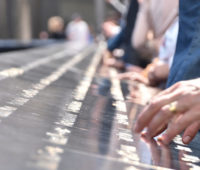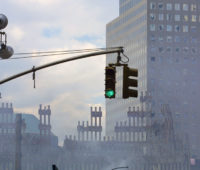Before 9.11 and after 9.11: all social scientists, save perhaps the most recalcitrant positivists waiting for more data points to come in, must now survey international as well as domestic politics by this temporal rift. Yet we seem stuck, it is uncertain for how long, in a dangerous interim that thwarts scholarly inquiry. After terrorist […]
Terrorist attacks on and since September 11th have stimulated public soul-searching, military and diplomatic responses, and efforts to reform public policy. Both the attacks and responses to them have raised a host of questions about social organization, basic social institutions, how people mobilize amid crises, and how differences of culture and politics shape conflict and cooperation.
This website features an extraordinary and still-expanding collection of essays by leading social scientists from around the country and the world. These are efforts by social scientists to bring theoretical and empirical knowledge to bear on the events of Sept. 11, their precursors, and what comes after.
We have asked the authors of these essays to write against two-week deadlines. Much to their credit they have obliged, even when it is difficult to come by sure knowledge in a time of quickly changing circumstances.
These essays are intended as resources for teachers—especially college and university instructors—who want to address the unfolding events in their courses from the perspectives of the social sciences. We hope they may also serve journalists and others who seek a guide to academic knowledge related to these events. Not least they are for all of us who seek deeper understanding in troubling times.
Ten years after these essays were published, contributors to After September 11 were asked to reflect on what they wrote and to explore what had changed and what remained the same since those harrowing times, resulting in the essay collection 10 Years after September 11.
Negotiating Identity and Community After September 11
by Kay DeauxI became a United States citizen four years ago because of my long love affair with New York….I am a Bangladeshi woman and my last name is Rahman, a Muslim name…Before last week, I had thought of myself as a lawyer, a feminist, a wife, a sister, a friend, a woman on the street. Now […]
After September 11th: Chances for a Left Foreign Policy
by Dick HowardA leftist (or “progressive”) American intellectual is expected to criticize his government. That seems to be the reason that many Europeans were astonished, for example, to find the name of a Socialist intellectual like Michael Walzer co-existing peacefully with people of rather different convictions on petitions supporting the Bush administration response to September 11th. And […]
Responses to 9.11: Individual and Collective Dimensions
by Rajeev BhargavaIn India, as elsewhere, every person understood that cry for help, the horror and fear writ large on terror-stricken faces, the trauma in the choked voices of people who saw it happen, the hopeless struggle to control an imminent breakdown in public, the unspeakable grief. For one moment, the pain and suffering of others became […]
On War and Peace-Building: Unfinished Legacy of the 1990s
by Susan WoodwardIn the hours and days after September 11, academics and political commentators alike seemed agreed on one judgment: “the world will never be the same again.” U.S. President George W. Bush was reported to have experienced a religious calling in which the event would shape the rest of his presidency. And for many who were […]
The Religious Undercurrents of Muslim Economic Grievances
by Timur KuranMany of the arguments heard since September 11 have invoked the economic underdevelopment of the Islamic world to explain why so many Muslims appear angry at the West and particularly at the United States. Economic globalization has benefited the West and harmed vast segments of the Islamic world, it is said. Some add that Islam […]
Appraising the War Against Afghanistan
by Richard FalkI. The challenge of 9/11 Without dwelling on the al Qaeda attacks, it was evident from the outset that the magnitude of the harm together with their exposure of present and future American vulnerability meant recourse to war by the United States. There were no credible alternatives to war, neither proceeding by way of the […]
To Reassure, and Protect, After September 11
by Didier BigoSecurity, as Jean Delumeau points out, consists of reassuring and protecting the public, not disturbing and worrying them. But sometimes, in seeking to achieve the former we unintentionally produce the latter. Reassuring does not consist of conjuring up every possible danger in order to “sell” security, or of denying or minimizing genuine dangers. Rather, reassuring […]
Global Executioner: Scales of Terror
by Neil SmithThe French philosopher Joseph de Maistre argued that insofar as human beings were constantly tempted to evil by their deepest passions, the maintenance of a peaceful social order ultimately depended on a single person, the executioner. It was much the same with nation-states, according to Maistre, which “are born and die like individuals” and have […]
Symbols of Destruction
by Elemér HankissThe shock Since the assassination of President Kennedy nothing has shocked the western world, and not only the USA, more than the terror attack of 11 September. On the one hand, this is understandable. We are citizens of the same world, heirs of the same civilization, and myriad human relations, institutional contacts, common values and […]













